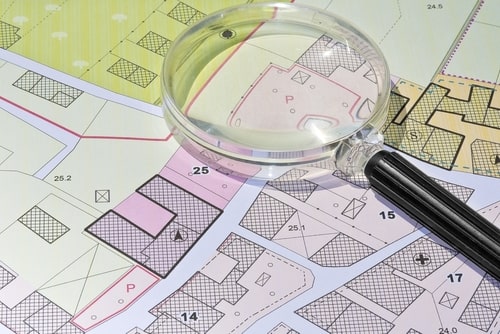Contact Our Firm
The use of the Internet or this form for communication with the firm or any individual member of the firm does not establish an attorney-client relationship. Confidential or time-sensitive information should not be sent through this form.
I have read and understand the Disclaimer and Privacy Policy.

How Zoning Laws Can Affect Your Florida Business
 Every municipality – whether a large, bustling city or a small rural town – has zoning laws or ordinances in place. The municipality is broken up into areas (zones) and each zone has regulations regarding how it can be used. When a business is looking for a location for operations, it is critical for that business to be aware of what the zoning laws are for the properties they are considering. These zoning laws can impact just what is allowed and is not allowed at that location.
Every municipality – whether a large, bustling city or a small rural town – has zoning laws or ordinances in place. The municipality is broken up into areas (zones) and each zone has regulations regarding how it can be used. When a business is looking for a location for operations, it is critical for that business to be aware of what the zoning laws are for the properties they are considering. These zoning laws can impact just what is allowed and is not allowed at that location.
Florida Zoning Laws
Florida has stringent zoning ordinances, which are also referred to as land use regulations, in place. The purpose of these laws is two-fold: regulate the growth of the municipality and protect the community the property is located in. Some of the more common types of zones an area can be broken into include:
-
Residential – For homes
-
Commercial – For businesses such as office buildings, retail stores, hair salons, etc.
-
Industrial – For larger businesses that involve manufacturing goods
-
Agricultural – For farming activities
-
Recreational – For parks, playgrounds, etc.
Each zoning area can also have its different rules on what is allowed. For example, a residential area may have restrictions on what type of home may be built in the area, including how many floors the structure could have. Areas can also be hybrid, where there are residential and commercial properties mixed in.
Some of the regulations that zoning ordinances address can include:
-
Appearance of the building, such as how much distance is required between buildings and how tall they can be.
-
Noise level allowed in the area
-
Whether parking will need to be provided by the property owner, such as a parking lot for a retail store
-
What type and where business owners can place company signs
All of these factors should be considered when a business is looking for a location to operate out of. For example, if the company manufactures products, it should not be looking at locations that are strictly zoned for commercial. Instead, they should be looking at industrial-zoned areas.
Zoning Variances
In some cases, a company may seek a zoning variance. These variances waive a specific zoning regulation under very specific terms. Generally, there are two different types of variances a property owner can request:
-
Area variance – This allows the owner to build a structure that does not conform with the zoning ordinance’s physical requirements. One example would be if the owner of the land wants to build a structure that is bigger than the current square footage allowed by the municipality.
-
Use variance – A use variance allows the owner to use the property in a way that is usually restricted by the zoning ordinance. Just as its name implies, it is requesting a different “use” of the property than what is intended, such as turning a home located in a residential zone into a business (i.e., insurance office, doctor’s office, etc.)
Contact a Fort Lauderdale, FL Real Estate Attorney
Zoning variances can be complex to obtain and it is recommended that you seek the legal assistance of a skilled Broward County real estate lawyer to prepare the request and present it to the zoning board of the municipality the property is located in. Call The Elliot Legal Group, P.A. at 754-332-2101 to schedule a consultation to learn more.
Sources:
https://www.broward.org/Planning/Zoning/Pages/default.aspx
https://www.rocketmortgage.com/learn/zoning-laws















